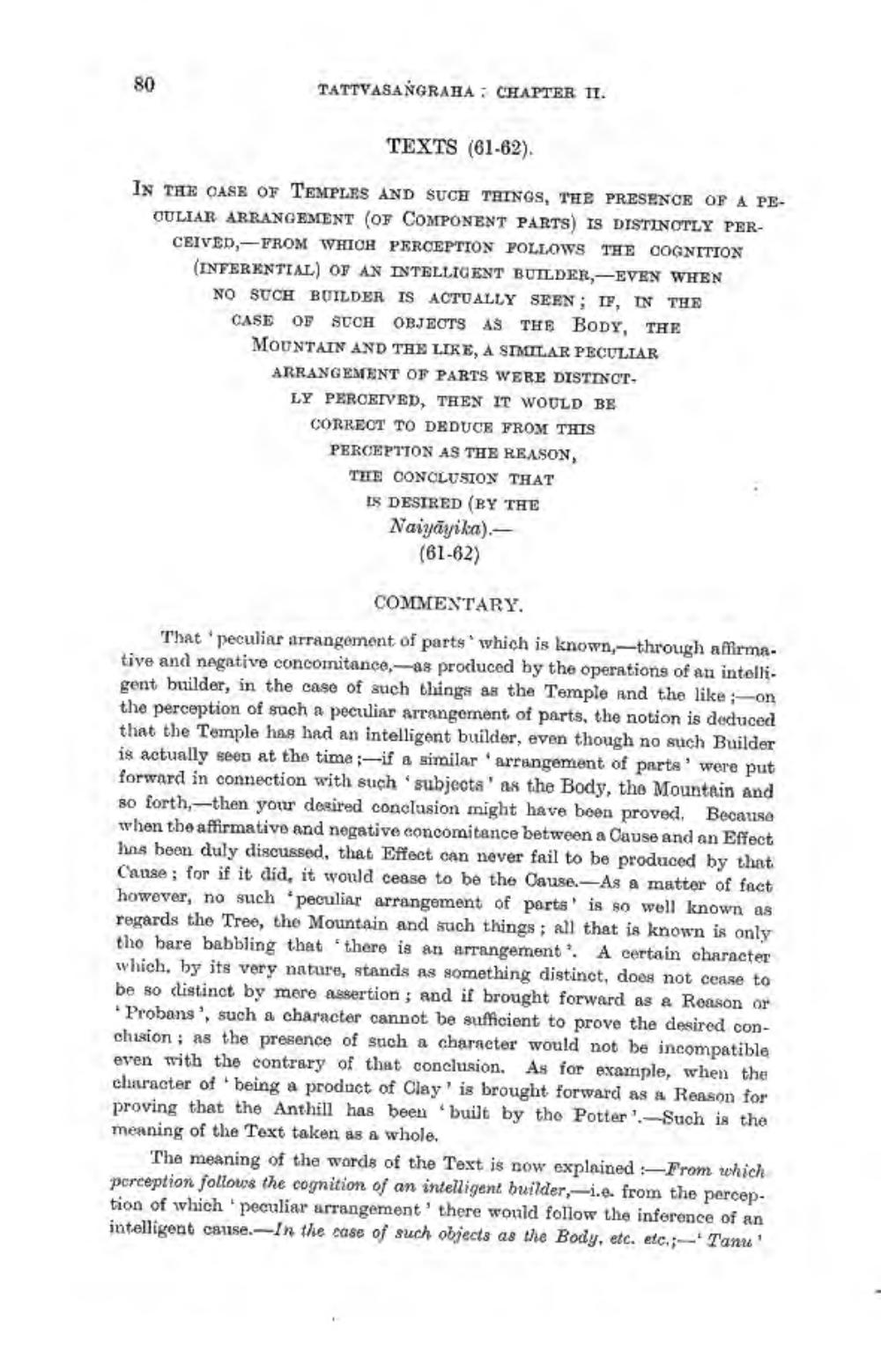________________
80
TATTVASANGRAHA : CHAPTER 11.
TEXTS (61-62)
IN THE CASE OF TEMPLES AND SUCH THINGS, THE PRESENCE OF A PEOULIAR ARRANGEMENT (OF COMPONENT PARTS) IS DISTINCTLY PERCEIVED,-FROM WHICH PERCEPTION POLLOWS THE COGNITION (INFERENTIAL) OF AN INTELLIGENT BUILDER,—EVEN WHEN NO SUCH BUILDER IS ACTUALLY SEEN; IF, IN THE CASE OF SUCH OBJECTS AS THE BODY, THE MOUNTAIN AND THE LIKE, A SIMILAR PECULIAR ARRANGEMENT OF PARTS WERE DISTINCT LY PERCEIVED, THEN IT WOULD BE CORRECT TO DEDUCE FROM THIS PERCEPTION AS THE REASON, THE CONCLUSION THAT IS DESIRED (BY THE Naiyāyika).
(61-62)
COMMENTARY.
That peculiar arrangement of parts which is known,-through afirma. tive and negative concomitance,-as procluced by the operations of an intelligent builder, in the case of such things as the Temple and the like ;-on the perception of such a peculiar arrangement of parts, the notion is deduced that the Temple has had an intelligent builder, even though no such Builder is actually seen at the time if a similar arrangement of parts were put forward in connection with such 'subjects' as the Body, the Mountain and so forth, then your desired conclusion might have been proved. Because when the affirmative and negative concomitance between a Cause and an Effect has been duly discussed, that Effect can never fail to be produced by that Cause ; for if it did, it would cease to be the Cause.-As a matter of fact however, no such peculiar arrangement of parts' is so well known as regards the Tree, the Mountain and such things; all that is known is only tho bare babbling that there is an arrangement. A certain character which, by its very nature, stands as something distinct, does not cease to be so clistinct by mere assertion; and if brought forward as a Reason or
Probans, such a character cannot be sufficient to prove the desired conchision; as the presence of such a character would not be incompatible even with the contrary of that conclusion. As for example, when the character of being a product of Clay' is brought forward as a Reason for proving that the Anthill has been built by the Potter'. Such is the meaning of the Text taken as a whole.
The meaning of the words of the Text is now explained From which perception follows the cognition of an intelligent builder,-i.e. from the perception of which peculiar arrangement' there would follow the inference of an intelligent cause. In the case of such objects as the Body, etc. etc.; Tanrı




